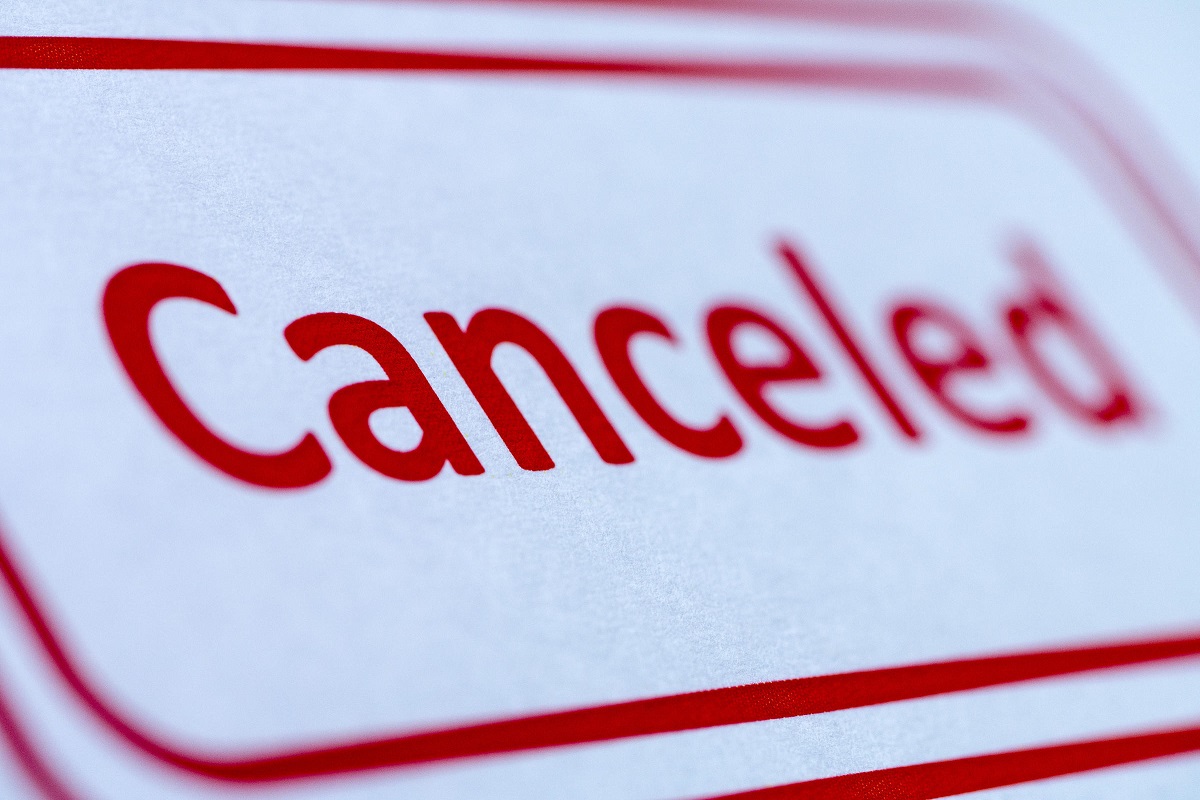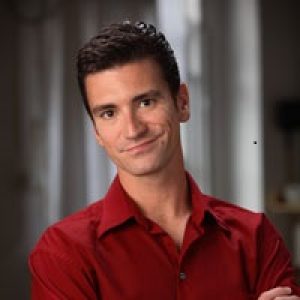Podcast: Play in new window | Download
Comedian, poker player, and long-time friend of the show Clayton Fletcher talks to Andrew about creativity, freedom of expression, political correctness, and so-called cancel culture. This is an extremely low-poker-content episode. Rather, it’s a conversation between two friends who don’t see eye to eye on this issues, with an emphasis on understanding rather than arguing.



Great material throughout. Not exactly a debate, but a refreshing discussion. As Andrew pondered who actually is being cancelled and Clayton suggested, “well you haven’t heard of them”, it might be good to know that there is a listing from academia (spreadsheet too): https://www.nas.org/blogs/article/tracking-cancel-culture-in-higher-education#caseslist
Thanks, Zach – for listening, for the comment, and for the link. I did browse that list, and I’m seeing the same problems I’m used to seeing from folks who are worried about “cancel culture”: it’s heavy on inflammatory rhetoric (there’s a lot of talk about “mobs”) and short on compelling examples of actual harm. Obviously I didn’t review every example, but the ones I clicked struck me as extremely mild and/or reasonable, not at all meriting the apocalyptic rhetoric of the main page. This has also been my experience pressing for examples of specific individuals in comedy, Hollywood, etc who have supposedly been “canceled”. The things that actually happened to them were usually just “criticism” except in cases where people did truly egregious things (e.g. Louis CK, whom I know Clayton agrees deserved to fall out of public favor). Examples from your link:
-A white student approached a group of black students at 4AM shouting that white people were the best thing that ever happened to this world. This included grabbing one of the students. The university sent a campus-wide email about a racially charged incident, and the linked article concludes, “It is still unclear if any disciplinary measures will be taken against von Abele.” Yet the text linking to the article describes his professional career as being ruined before it has even begun.
-The extent of Donna Hughes’s cancellation, at least according to the linked article, seems to be a statement from the university that academic freedom “should be exercised responsibly with due regard for the faculty member’s other obligations, including their obligations to the university’s students and the university community.”
-Aaron Kindsvatter put a video on YouTube criticizing some of UVM’s policies. In response to a comment on the video, he expressed agreement with the sentiment that, if confronted by anti-racism advocates, he should “kick the shit out of them”. The extent of his cancellation seems to be a petition for his resignation, of which he was not aware until a journalist asked him about it.
-Veronique Machelidon repeatedly used the N-word to refer to black people during one of her lectures. Her university said it would investigate.
So far I’m 4/4 on examples where the person in question was in no way “canceled”. I’m not inclined to put any more time into this, but feel free to direct my attention to a specific incident if there’s one you consider especially egregious.
Hi Andrew – thanks for the analytical response.
Your observation that you don’t see the cancellation in the first few cases of the cited article may be a bit biased by these being the most recent. The more recent professors transgressions have been noted as being “subject to investigation” where the next semester may reveal the eventual outcome/cancellation: firing, being denounced, having classes cancelled, being demoted, being suspended, etc. Thankfully, these actions are usually not immediate.
The good news is that there’s a downloadable spreadsheet summary within the article, to get the cross section view of these particular cases.
Although you don’t bring it up specifically in the podcast, defining what it means to be cancelled is key. I don’t think you or Clayton ever specifically defined what cancelled means. I would surmise from your discussion that it means a person losing their job or losing opportunities at their job which would otherwise have been available if not for the free speech choice they made. Here again, the definition of free speech is problematic, where certainly speech in your place of employment or where the speaker may be viewed as representing their company/institution is not going to be as free when the company/institution has some image to maintain.
So there’s a fuzz factor to all this, but just to move forward, here’s an assumption to at least construct a summary: Being cancelled consists of losing your job or losing opportunities of advancement at your job. Being denounced, suspended, placed on admin. leave, having a pay cut, being demoted, being reprimanded are all forms of cancellation.
Given the summary spreadsheet, from which sorting and pivot tables can be done, here are the totals:
• 162 cases, 96 in the last 16 months (2020-21). One could suggest this shows an increasing trend.
• Of the 162 cases, 128 or 79% of the cases resulted in the professor in question being “cancelled”.
• Of the other 34 or 21 %, 27 or 17% are under petition and 7 or 4% are under investigation.
Each case is unique of course, but here is a top eight list and number of each:
Resulting Action Occurrences
Denounced 53 (cancelled)
Fired 35 (cancelled)
Petition for firing 16
Suspended 9 (cancelled)
Resigned 6 (cancelled)
Administrative leave 4 (cancelled)
Under investigation 2
Threats of violence 2
As a bottom line, 128 cases within academia of a professor being “cancelled”, subject to the above definitions.
I don’t know that there is a specific incident to go into further depth on. Clayton”s examples in his own industry worked very well, I thought. Sadly, in some cases I felt that even he was taking a bit of a risk in quoting the fellow comedians, whose jokes he could be seen as somehow endorsing. It’s clear he wasn’t endorsing, but it seems that it only takes 1-in-1,000 potential listeners who take offense and the cancel bell could start ringing again.
My original and rather small point was that documented cancelled examples are out there with some digging. Academia came to mind as a field where one might expect free speech to thrive, as it has in past decades, rather than the opposite trend of speech (and jobs) being cancelled in this decade.
Thanks, Zach, this is helpful. My aspiration is always to understand the strongest possible arguments against my position. Especially in a case like this, where I can’t really prove the nonexistence of a cancel culture crisis, the best I can do is try to find and evaluated the strongest evidence establishing its existence.
I do understand that, “My original and rather small point was that documented cancelled examples are out there with some digging.” And I appreciate you presenting these, because if I dug up my own examples to refute, someone could always say, “Well, no, there are worse cases than that.” So I’d much rather let an advocate choose the examples to consider.
That said, from what I’ve seen so far (and I’m about to look at some more, older examples from this site), these are not compelling examples. Yes, they have a lot of links, but all the links I’ve examined so far have been to quite poor examples.
Your point about the examples I looked at being recent is well taken, though it addresses only one of my concerns. In many of the examples I cited, the behavior in question seemed to me beyond the pale and deserving of some action: a student approaching a group of black students at 4AM, putting his hands on one of them, and shouting about how great the white race is? a professor agreeing that he should kick the shit out of anti-racism advocates? If that’s what’s getting “cancelled”, I’m OK with it and don’t see it as a threat to the principles of free speech.
I appreciate you establishing a definition of cancelled, and I think it’s a good one. This is what I meant to do at the beginning of my conversation with Clayton, but I think we got off on something else before we really did it.
I picked a few more to look at, from among the older examples:
Here the professor in question said “It’s the queers they should be hanging, not the flag.” FWIW this was at a Canadian university. https://www.cbc.ca/news/canada/toronto/prof-rick-coupland-no-longer-at-st-lawrence-college-after-alleged-homophobic-remark-1.3161900
This one (also from Canada) is a little vague. I guess Holocaust denial and “9/11 was a Zionist conspiracy” falls within the bounds of academic freedom? It’s not advocating or threatening violence towards someone, from what I can tell. https://www.cbc.ca/news/canada/calgary/tony-hall-suspended-lethbridge-1.3793294
This is the most compelling example I’ve looked it, though it’s also from Canada: https://www.cbc.ca/news/canada/sudbury/persinger-psychology-class-1.3389410
A reasonable example, though no one was cancelled. I don’t know that universities should outright forbid certain Halloween costumes, though this one didn’t. And no one was cancelled. https://www.nytimes.com/2015/11/09/nyregion/yale-culturally-insensitive-halloween-costumes-free-speech.html
Best example yet of prof being fired for seemingly legitimate academic work. But I’m not sure it’s anything to do with political correctness? Seems like the real problem is he blew the whistle on his department head: https://www.thefire.org/protection-dissenting-opinions-part-diversity-conversation-ucla/. Not something he should be fired for, of course, but not cancel culture either.
Again, I do appreciate you sharing these and encouraging me to look at older examples, but I still don’t see documented evidence of a widespread cancel culture. In fact, I see the opposite: if this is the best evidence there is, then the case for it is quite weak IMO.
I’ll also point out that no one has been ringing the cancel bell over Clayton’s repeating of those jokes, nor has anyone reported being offended by his doing so. So perhaps your concerns about the overreactions of a hypersensitive culture were unfounded, or at least not as well founded as you thought?
I really enjoyed this discussion of a complex topic. I am very supportive of the increased “wokeness” of western society, but also dislike censorship of artistic expression. A lot of great standup has come from an outsider perspective and is often offensive or taboo and better for it. But I also see how jokes reinforce harmful stereotypes even when we all know it’s just a joke. Dave Chapelle was a great example there.
Overall I’m conflicted but thanks for the episode.